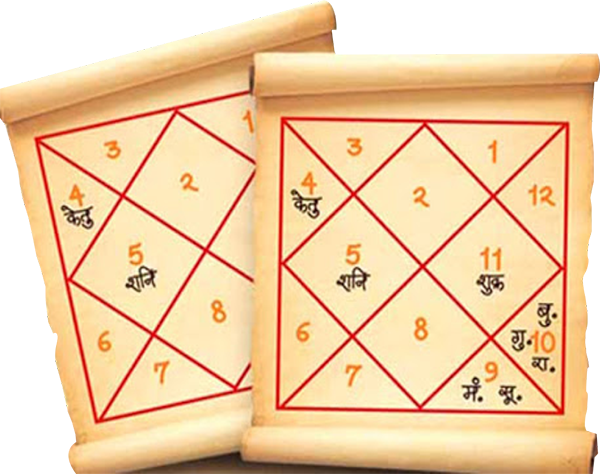Kundli matching, or horoscope matching, is a time-honored tradition in Hindu culture that plays a crucial role in ensuring the compatibility of two individuals before they commit to marriage. This practice, deeply rooted in Vedic astrology, seeks to match the astrological charts of the prospective bride and groom to assess their compatibility and potential for a successful marriage. Here’s a detailed exploration of kundli matching and why it remains significant today.
The Importance of Kundli Matching
In Hindu culture, marriage is not just a union of two individuals but also of two families. For centuries, astrologers have relied on kundli matching to ensure that the couple’s stars are aligned, both figuratively and literally. The primary goal is to evaluate how the planetary positions at the time of the couple’s birth will influence their married life. This process is believed to determine key aspects such as health, wealth, longevity, emotional stability, and the overall success of the marriage.
The Process of Kundli Matching
Kundli matching is based on several factors, but one of the most commonly used systems is Ashtakoota Milan. This system involves comparing eight key aspects of the couple’s horoscopes, with each aspect given a certain number of points, or gunas. The higher the number of points matched between the two kundlis, the better the compatibility.
The eight kootas considered in this system are:
- Varna: Indicates spiritual compatibility and mutual respect.
- Vashya: Determines the degree of control between the partners.
- Tara: Looks at health and wellness.
- Yoni: Examines sexual compatibility and mutual love.
- Graha Maitri: Assesses mental compatibility and intelligence.
- Gana: Focuses on the nature of the couple and their temperaments.
- Bhakoot: Affects the longevity and prosperity of the relationship.
- Nadi: Concerns health and offspring.
Each aspect can contribute a certain number of points, and a total score out of 36 is calculated. Generally, a score of 18 or more is considered a good match.
Key Aspects Evaluated in Kundli Matching
- Physical Compatibility: Astrologer analyze whether the physical and emotional needs of the couple are aligned. Yoni and Tara kootas play an essential role in this evaluation.
- Mental Compatibility: A good mental connection is vital for a successful relationship. The Graha Maitri and Gana kootas determine how well the couple will communicate and resolve conflicts.
- Financial and Social Prosperity: Bhakoot and Vashya help analyze whether the marriage will bring financial stability and social standing.
- Health and Longevity: Kundli matching also looks into the health of both partners and their potential for a long life together. Nadi and Tara are crucial in this assessment.
- Offspring and Family Life: The couple’s ability to have healthy children is another factor, with Nadi being the most important aspect in this context.
The Role of Doshas in Kundli Matching
A significant part of kundli matching is identifying and mitigating any negative influences or doshas, such as Mangal Dosha. This occurs when Mars is positioned in a specific way in the birth chart and can bring challenges like frequent disagreements, financial instability, or health problems. However, astrologers often suggest remedies, including mantras, fasting, or specific rituals, to neutralize the dosha’s effect.
Modern Perspective on Kundli Matching
While kundli matching remains an integral part of arranged marriages, its relevance in love marriages has grown as well. Couples who are in love often seek astrologers’ advice to understand the challenges they might face and take corrective measures in advance. Though astrology does not replace personal choice, it offers valuable insights that may help strengthen the relationship.
Is Kundli Matching Essential for a Happy Marriage?
The success of a marriage depends on many factors, including trust, communication, and mutual respect. While kundli matching provides a traditional, astrologically grounded method to predict potential hurdles, it is not a guarantee of marital bliss. Many modern couples choose to rely on their compatibility in real life rather than solely on astrological predictions. That said, kundli matching remains an important cultural practice, especially for families seeking assurance of a harmonious union.
Conclusion
Kundli matching is more than a simple ritual in Hindu culture—it is a thoughtful practice aimed at ensuring long-term compatibility between couples. By assessing aspects such as health, prosperity, and emotional well-being, kundli matching helps couples and families gain confidence in the match. While not foolproof, this ancient practice continues to hold significance for those who believe in the guiding power of the stars.
